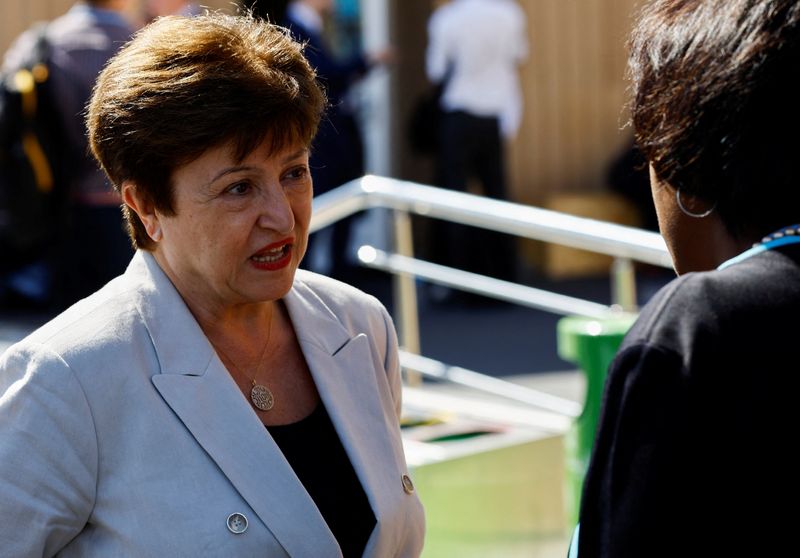By Andrea Shalal
WASHINGTON (Reuters) -The head of the International Monetary Fund on Sunday welcomed a long-awaited debt deal by Chad's creditors and said it would reduce the African country's risk of debt distress while guarding it against downside risks, including lower oil prices.
"We have been waiting for this day," IMF Managing Director Kristalina Georgieva said in a statement.
She said the debt treatment agreed by the creditors was consistent with the objectives of Chad's IMF-supported program, and should pave the way for completion of the first and second reviews that would enable disbursement of IMF funds.
Chad on Friday said it had reached a debt agreement with Swiss commodities trader Glencore (OTC:GLNCY) Plc and other creditors. Sources said the deal called for some debt relief in 2024 in the form of a reprofiled debt service schedule, but added that it would not reduce Chad's overall debt level.
The announcement drew criticism from World Bank President David Malpass, who said he remained deeply concerned about Chad's longer-term ability to pay its $3 billion in external debts, given the absence of actual debt reduction.
Sources familiar with the agreement said it would protect Chad if oil prices dropped again, while restoring confidence and opening the door to fresh resources. But they agreed that Chad's overall development needs were immense and eclipsed its external debt.
Creditors, including Glencore, concluded there was no current financing gap, given a rise in oil prices that had buoyed the revenues of the oil-producing country, but agreed to reconvene if the price changed.
They also agreed, contingent on oil prices and other factors, to stretch out debt-service payments beginning in 2024 to ensure that Chad's debt-service-to-revenue ratio fell below 14% in 2024 from the current level of 20%. After 2025, the ratio would be required to drop to 12.4%, said the sources.
The automatic mechanism would protect Chad if oil prices fell again, eroding revenues, they said. It was also needed to ensure continued IMF lending, which is possible only if a country is under the threshold for moderate risk for debt distress.

The agreement should pave the way for Chad to receive $145 million in funding from its IMF program, once the board approves the first and second reviews, probably around Dec. 22.
That should help unlock hundreds of millions of dollars of additional funds from the World Bank and bilateral lenders.